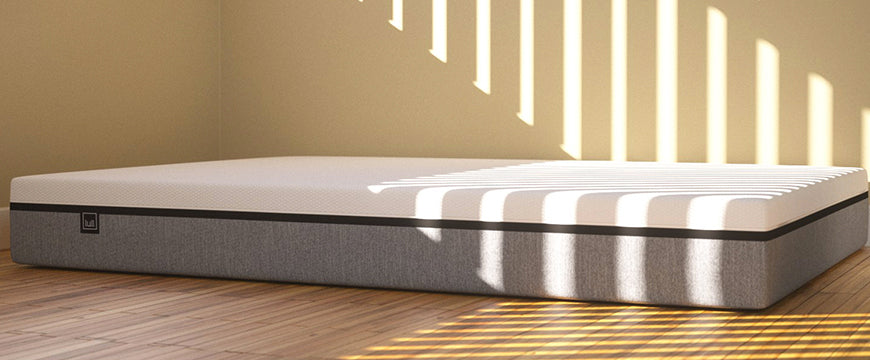With almost 50% of American adults dealing with some type of insomnia, and over 100 kinds of sleep disorders out there hanging over our heads, making sure that we’re getting the best sleep possible and practicing good sleep habits is more important than ever. That’s where
World Sleep Day comes into play with its global mission to educate us about some essential sleep facts.
For example, did you know that it should take you right around 15 minutes to fall asleep? Or that the ideal sleeping temperature is 60-67°F? And that over 10% of us dream only in black and white?
To help you celebrate World Sleep Day, and make sure that you’re getting the best sleep possible, we’ve gathered these 7 ways to get an awesome night’s rest from the top sleep experts:
1. Get some more sunlight
As counterproductive (and almost cruel) as it might sound, getting up earlier can help you to get better sleep if you’ve been having trouble getting to sleep and staying that way. Exposure to natural light in the mornings has been shown to stabilize our sleep-wake cycles and reset the human body clock. You should also avoid napping for more than 20 minutes at a time, if your goal is to get your internal clock reset for earlier bedtimes and rising bright-eyed and bushy-tailed in the morning.
2. Add physical activity to you to-do list
Regular exercise has long been proven to be a great way to get better sleep each night. Whether you’re a runner, a swimmer, or a fan of the Pilates studio, being active during the day will help you to feel relaxed and sleepy when bedtime rolls around. Just be careful to get your activity of choice in at least 6 hours before you plan to turn in for the night, as vigorous exercise overheats your body and stimulates the central nervous system, which can cause insomnia later on in the day.
3. Unplug to help you unwind
Blue light from your smartphone, laptop, or TV screen has been shown to reduce your ability to produce melatonin (the hormone that helps you sleep), making you even more alert than you usually would be. If you want to be able to get a better night’s rest, sleep experts suggest that you turn off all electronic screens at least 30 minutes before turning in for the night, and switch the lighting in your bedroom to a source that is softer and dimmer, in order to encourage the production of melatonin by decreasing your exposure to bright lights.
4. Kick worries out of bed
Stress and concerns that build-up during your working day can come home to roost when you climb between the sheets at bedtime, keeping your brain active and racing when it should be slowing down and soothing you into sleep. Setting aside some “quiet time” in the evening before turning in has been proven to be a great way to ditch your cares and get the rest you need and deserve. Try practicing some light yoga, a bit of meditation, or even having a short prayer session before bedtime to help you to unwind and slip off to Dream Land faster than ever before.
5. Just say no to nightcaps
Imbibing in a cocktail before bed has long been passed down as a good way to relax in the evening, and help folks to start feeling sleepy. But however enjoyable (and even effective) this tradition might seem to be, drinking alcohol before bed has actually been shown to lead to shallower sleep in the end. This can lead to the development of a negative cycle where your brain is not only getting the deep sleep that it needs to rest and refresh itself, but you might also find that you’ve become dependent upon those nightcaps, and can no longer get to sleep without them.
6. But say yes to something hot
Although alcoholic beverages aren’t a good idea when it comes to helping you sleep, it’s been shown that some non-alcoholic ones just might do the trick. Try creating a pre-bedtime relaxation routine that includes enjoying a warm (caffeine-free) drink and an enjoyable, soothing activity about 30 minutes before bedtime. For example, have a cup of chamomile tea and read a chapter in the new novel you picked up last week. But be sure to avoid any food or drinks that contain caffeine or carbonation at least 6 hours before going to bed, as they have been shown to keep you up later by stimulating your mind, as well as your bladder – leading to tossing and turning, not to mention late night bathroom runs.
7. Work soothing music into your bedtime routine
And while you’re working on creating that relaxing bedtime routine, you might want to consider adding a bit of soft, soothing music to the mix. Sleep experts have found that calming sounds are a great way to lull you into a deep, restorative sleep each night, and they recommend creating a playlist that includes anything from new age to classical music, as well as “soundscapes,” such as rolling waves and sounds of the forest. But they caution that loud and stimulating music can have the opposite effect by keeping you awake, so be sure to leave out pop, rap, or rock tunes.
We hope that these tips will help you to get the good night’s rest that you’ve been looking for, and we want to wish you and yours a very Happy World Sleep Day!
